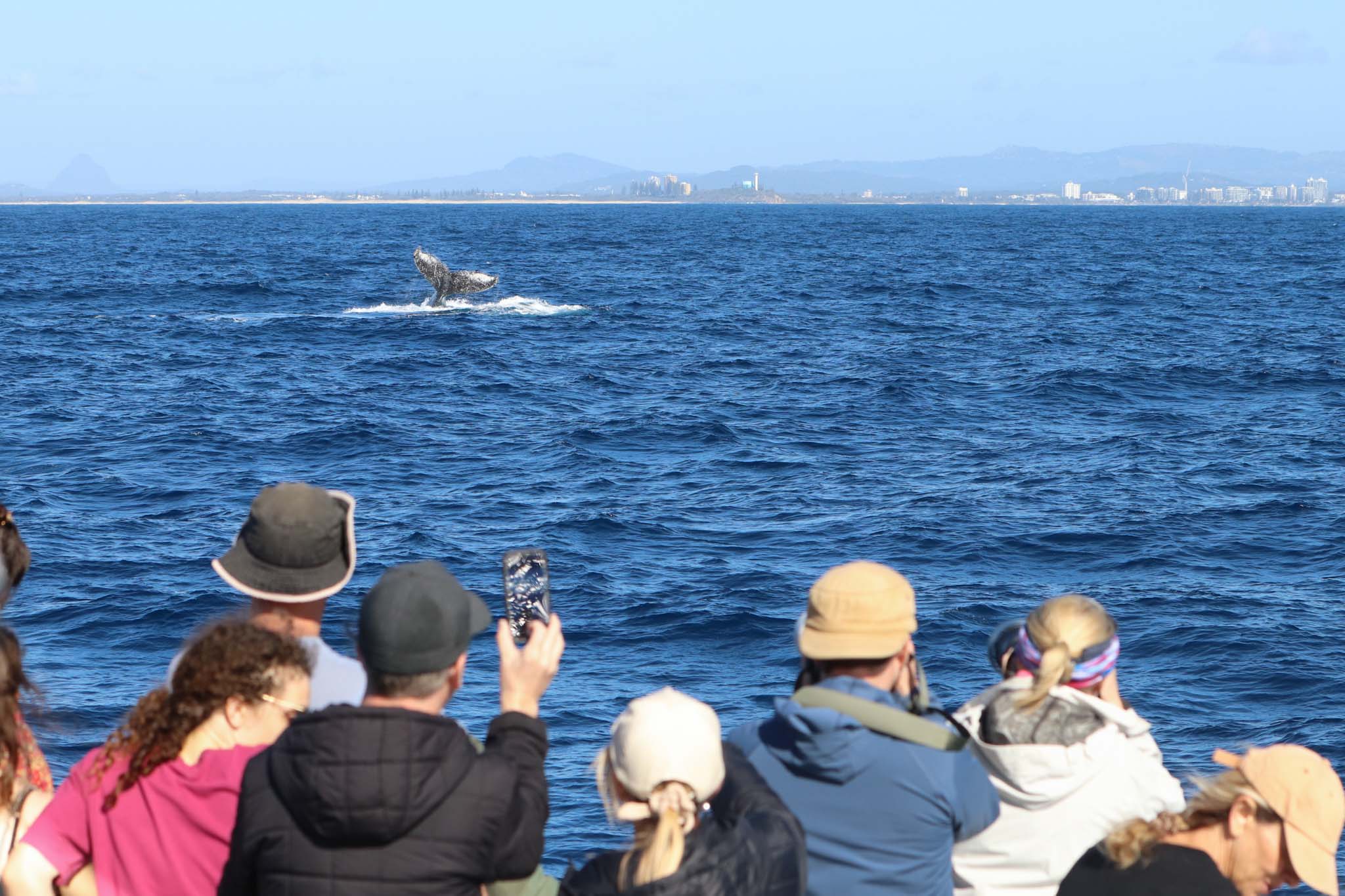News release
From:
As Australia’s east coast tourism industry dives into a new whale migration season, a UniSC study has revealed the emotional and behavioural effects on people who hear the sounds of the ‘awe’-inspiring marine mammals.
The University of the Sunshine Coast research, published in the Journal of Environmental Psychology, found that visitors on whale-watching boat trips reported a transformational feeling of awe after listening to the humpback whales vocalise, blow, breach and slap their fins.
"This natural soundscape resulted in participants feeling a connection to nature that contributed to pro-environment attitudes and actions," said UniSC academic Dr Vikki Schaffer.
Dr Schaffer, who has supervised annual whale sound studies on board Sunreef vessels off the Sunshine Coast since 2022, said the latest paper confirmed the power of sound in nature-based tourism.
"When coupled with participants' enhanced knowledge of whales, these sounds really influenced what we call PEI, or pro-environmental intent, such as recycling," she said.
Subsequent research found similar positive implications for the emotion of 'wonder'.
She said sustainable tourism in connection with the annual May-November humpback whale migration was very important to the regional economies along Australia's east coast.
"Globally, about 50 percent of tourism relates to coastal and marine experiences and as such relies on healthy oceans.
"Increasing our understanding of the visitor experience is not just vital for whale tourism operators, it shows the practical benefits for conservation."
The paper was led by UniSC Psychology Honours graduate Chloe Kjaer and co-supervised by Senior Lecturer in Clinical Psychology Dr Lee Kannis-Dymand.
The team conducted experiments with natural sound, pre-recorded sound and sound detected by a hydrophone.
John Fell, who manages dive and whale-watching business Sunreef Mooloolaba and partners with Dr Schaffer’s team, said the results confirmed years of feedback from ocean adventure participants.
“Immersive tourism is all about capturing the imagination and igniting the senses to create a powerful and meaningful experience for guests and raise awareness of the marine environment,” he said.



 Australia; QLD
Australia; QLD



